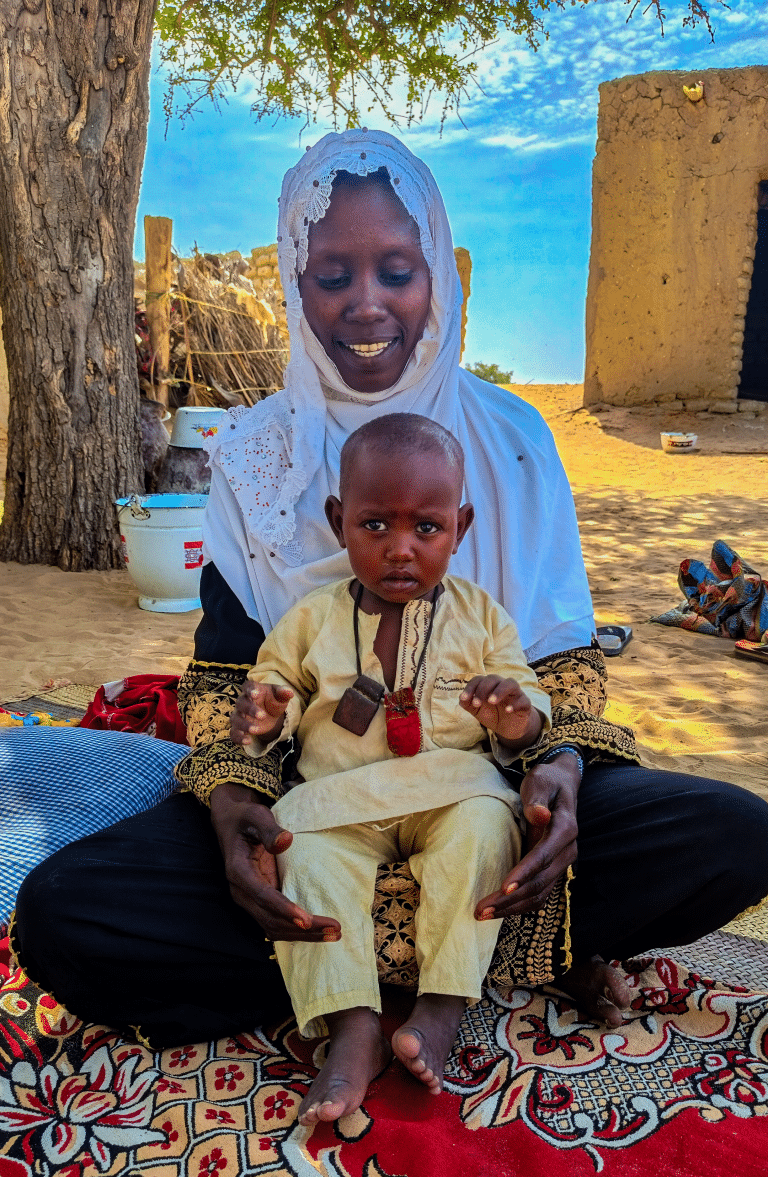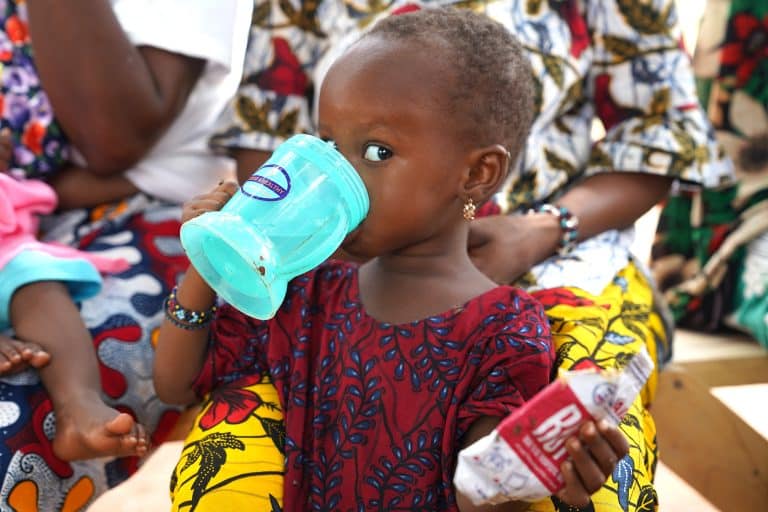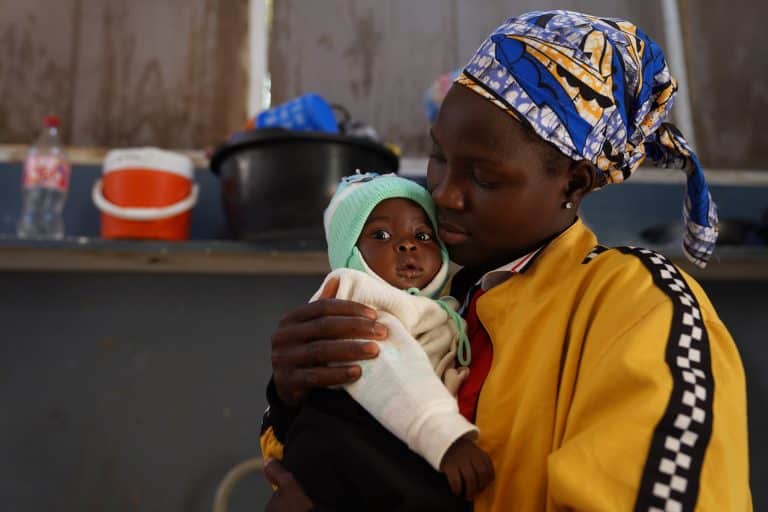“I felt very humbled”
The day I arrived in Beni, I was eager to visit the Ebola Treatment Center and finally see the famous CUBEs that I had been hearing about. The CUBE, a biosecure emergency care unit for outbreaks, is an ALIMA innovation which, unlike treatment centers constructed during past outbreaks, allows patients to be cared for through the structure’s transparent walls, reducing the risk of transmission to health workers, and allowing friends and family to safely see and talk with their loved ones throughout treatment.
I had a very interesting visit: the circuit of patients was explained to me. I could see how they were treated within the CUBE and observed families visiting patients. I found the team united and welcoming, and I felt very humbled working with people who had already cured 5 Ebola patients before I arrived.
On the third day, while I guided some American journalists filming the treatment center, we received the results of one of our patients’ laboratory tests. The results were negative. The patient was cured. Everyone was rejoicing in the medical tent. The psychologist announced the good news to the patient, who was also very happy.
“A moment of true and heartfelt joy “
A few moments later, we had formed a guard of honor to cheer the patient’s discharge. It was the most beautiful moment I have seen since I started working with ALIMA. Nurses, hygienists, doctors and logisticians: all members of the team were cheering, singing and raising their hands in the air triumphantly. It was a moment of true and heartfelt joy. The patient was radiant, flanked by two of the doctors who had treated her during her 22-day stay at the Ebola Treatment Center. I will keep this image in my mind for a very long time.
Days passed and I went on with my activities.
“It’s crackling on the road”
On Saturday night, as I was on the phone with a journalist, the emergency coordinator gestured to me. I hung up and she only said these two sentences: “It’s crackling on the road. We are all going back to the base.” We quickly took the road towards our safe location. The night had already fallen and the streets had gone quiet. All that remained was the sound of gunfire from the rebels and the army. I was with a small group of colleagues. We talked and listened to music to conceal our fear. But each time we received messages from our Congolese colleagues, we’d stop everything and focus on our phones, praying for good news.
The following morning, we heard a sad report: more than twenty people were reported to have died in the attack, and the majority were civilians. I saw tears in my colleagues’ eyes. It’s really disheartening to think that even after the Ebola outbreak is over, the people of Beni will continue to lose their brothers and sisters just because they were in the wrong place the wrong time.
“Rolling up our sleeves to save patients”
I only had three days left in Beni. I continued to work, taking a few more precautions. Teams from the Ebola Treatment Center also continued to work so that patients would have access to care seven days a week, 24 hours a day. Reading colleagues’ faces, I could see sadness had given way to determination. They’d roll up their sleeves and focus on saving patients. And the results are pretty positive right now. A few hours after I left Beni, two more patients were reported as having been cured of Ebola. I rejoiced at the news and I felt proud. Proud to have been around those who saved these patients. Proud to call them my colleagues. Proud to work for ALIMA.
*Cover image: Anne-Gaelle Borg / ALIMA





